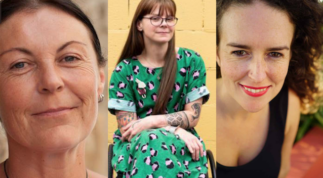Content warning: violence, sexual assault
Public discussions are an important component of education and prevention work, as they lay important groundwork for shifts in societal attitudes. These public, particularly broadcasted, conversations must be done in a considered, meaningful manner. What meaningful discussion is, however, tends to be more complex and not often agreed upon. As far as I’m concerned, meaningful discussion and inclusion are inextricably linked.
There was a landmark report recently titled The Choice: Violence or Poverty, released earlier this year. That report was discussed on ABC’s Q and A (7 July 2022) which received some critique from disability activists such as Nicole Lee, about the use of deficit language and implications that disabled women are responsible for violence perpetrated towards them.
With the launch of Our Watch’s resource for prevention of violence specifically against disabled women and girls, Changing the Landscape, national discussions have been happening about the intersection of gendered violence and disability.
This launch adds a focussed perspective on gendered violence prevention in the disabled community. It adds to the broader discourse about different jurisdictions considering the criminalisation of coercive control, and the consideration of a national approach to doing so. It has prompted a renewed attempt to change the conversations had about family, gendered and intimate partner violence crisis occurring in Australia.
When it comes to gendered violence experienced by disabled people, this link is particularly plain. For discussions about intersecting experiences, such as this, it is imperative for those with lived experience to not only have their perspectives involved but amplified. It’s important that the broader community recognises that lived experience is valuable expertise that can be learned from and the foundation for education and prevention action.
What’s also important is inclusion beyond tokenistic gestures on behalf of able-bodied people and systems. By doing appropriate research into the appropriate language to use, what issues affect the disabled community specifically concerning their risk of gendered violence acknowledges that there is a need for a fundamental shift in focus when it comes to addressing complex issues. This is a shift away from able-bodied, white perspectives as default. The reality is that gendered violence perpetrated against disabled people simply can’t be addressed with all the subtlety the topic deserves without the understanding of those who have lived it.
Meaningful inclusion is vital for the simple reason that not all those who are disabled experience gendered violence, and not all those who experience gendered violence are disabled. Those of us whose lives and pivotal life events have occurred in the intersections of these experiences have unique insights that are interwoven from how these different facets of our identities interact with each other.
Crucially, not all gendered violence survivors have the same opinion about what approach is best to address gendered violence against disabled people, particularly in the instance of criminalisation of coercive control. There is supposedly understanding that disabled people are not a homogenous group, but where are the public, amplified discussions amongst our community? Where is the discourse about the breadth of perspectives on how to best approach complicated issues that we are disproportionately affected by? I’m yet to receive any invitations.

 Katie Brebner Griffin
Katie Brebner Griffin
